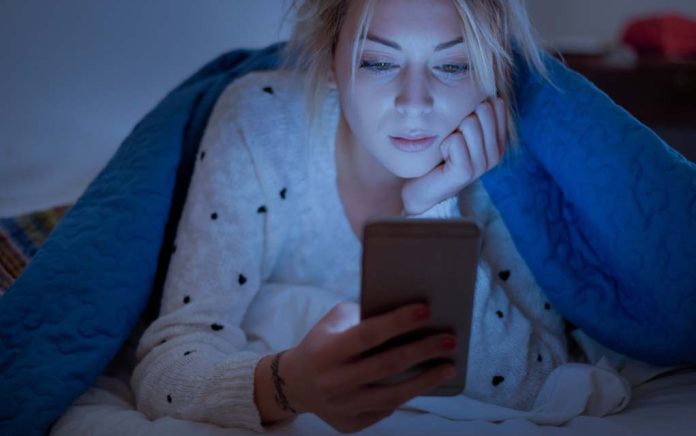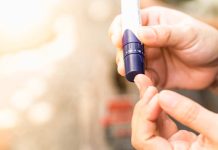
(HealthyResearch.com) – Let there be light! It’s a common phrase used by many when they feel they have experienced too much darkness. Light, both natural and artificial, is beneficial to our daily routine, how we function and, ultimately, how we feel.
We are exposed to a whole spectrum of light from infrared to ultraviolet during the course of each day. But are all forms of light good for us? Recent research indicates that certain wavelengths may wreak havoc on our internal clocks. We have more about how certain types of light might be affecting your shut eye.
What is Blue Light?
Blue light falls in a specific wavelength range between 400-490 nm. It’s naturally part of sunlight. It may help boost attention, mood and reaction times during the daylight hours and might make it easier to complete tasks on time.
Blue light is also prevalent in modern electronics like cell phones, computers, tablets and other electronics with LED-based screens. Some researchers have hypothesized that blue light might be part of the reason electronics tend to be so addictive. Recent research has shown, however, that blue light during the evening and night hours just before or while we’re trying to slip into a peaceful slumber might be counter-productive.
How It Prevents Sleep
Blue light may interfere with the circadian rhythm. Having a television on or checking emails in bed may prevent us from falling asleep. Based on circadian rhythms, our bodies want to fall asleep when the sun goes down and darkness falls. Darkness (or, at least, the lack of blue light) also helps stimulate melatonin, which allows the body to slow down and become sleepy.
Block Out Blue Light
If you find sleep difficult to come by at the moment, consider blocking out blue light after sunset as much as possible by utilizing the following strategies:
- Keep your bedroom as dark as possible with light blocking curtains or blinds;
- Avoid using night lights (many of which use white-light LEDs, a major source of blue light);
- Stay off all phones and electronic devices.
Other factors, like temperature, might be at play, also. If possible, save blue light sources for daytime stimulation and give your body a rest.
How Blue Light Affects Overall Health
Sleep disruptions throughout the night from blue light sources like a phone screen may contribute to other health issues like obesity, cardiovascular disease, diabetes, and depression. Sleeping at least 6 to 9 hours helps the body rejuvenate and regenerates healthy cells.
Blue light can be pervasive. If you need light while you sleep, choose a source that’s free from blue light to prevent potential sleep disruptions. Rest is essential to health and overall mental acuity, and fortunately for us, the solution to better rest and health may be as simple as lights out!
~Here’s to Your Health & Safety!
Copyright 2021, HealthyResearch.com
















